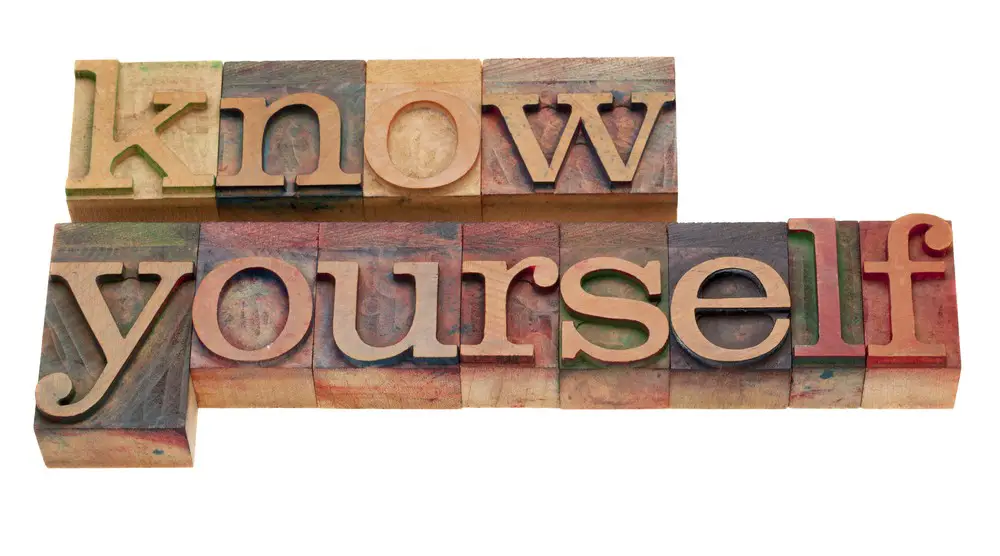As a BetterHelp affiliate, we receive compensation from BetterHelp if you purchase products or services through the links provided
In philosophy, a growing interest in authentic living has emerged. This approach towards life emphasizes the importance of self-discovery and staying true to one’s beliefs and values, despite social pressures to conform. By examining the components of authentic life philosophy, individuals can gain valuable insights into their personal growth and fulfillment.
Historically, philosophers, from Socrates to Nietzsche, have championed the importance of authentic living. The crux of this philosophy revolves around self-awareness, personal growth, and embracing individuality. Individuals can ultimately find contentment and inner peace by embarking on a journey to understand themselves better and remain true to their personal convictions.
In today’s society, where conformity is often expected, striving for an authentic life can be challenging. However, this philosophical endeavor promotes self-acceptance, emotional resilience, and the pursuit of a meaningful existence. Engaging with the concepts and ideas behind an authentic life philosophy provides individuals with tools to navigate the complexities of modern living while remaining true to their authentic selves.
Authentic Life Philosophy: Origins and Key Thinkers
Søren Kierkegaard
Søren Kierkegaard, a Danish philosopher, is considered the father of existentialism. His works emphasized the importance of individual choice and personal responsibility in one’s life. Kierkegaard believed that anxiety is an important part of the human experience and can lead to self-discovery and personal growth. He also explored the concept of despair and its role in the quest for an authentic life.
Friedrich Nietzsche
Friedrich Nietzsche, a German philosopher, challenged traditional moral and ethical systems, arguing that they were restrictive and relied on unfounded assumptions. Instead, he proposed the idea of the Übermensch or “Superman” and encouraged individuals to create their values and live beyond the constraints of societal norms. His work touched on art, freedom, and the connection between life and death.
Martin Heidegger
Martin Heidegger, another German philosopher, focused on understanding the nature of human existence. He proposed that how individuals encounter the world influences their understanding of it and that true authenticity is found when an individual confronts their mortality. Heidegger’s philosophy emphasizes the importance of responsibility and making choices that align with one’s true nature.
Jean-Paul Sartre
Jean-Paul Sartre, a French philosopher, and writer, built upon the ideas of previous existentialists, emphasizing the importance of human freedom and responsibility. He argued that humans are “condemned to be free” and must make choices in a world without inherent meaning or purpose. This freedom, however, causes anxiety, as individuals are solely responsible for their actions and the consequences that arise from them. Sartre’s work often addressed themes such as ethics, the role of art, and the nature of human existence.
Elements of an Authentic Life

Self-Awareness
An authentic life begins with self-awareness. Through introspection and self-discovery, individuals become aware of their thoughts, feelings, and beliefs. This awareness helps them understand their authentic selves and make informed decisions. Developing self-awareness often involves exploring personal values and recognizing patterns in everyday life.
Values and Moral Standards
Living authentically requires individuals to identify and uphold their values and moral standards. These principles guide their actions, decisions, and relationships. Maintaining these values brings balance and happiness by aligning choices with what truly matters. In contrast, compromising values can lead to guilt and inauthentic living.
Purpose and Passion
Discovering one’s purpose and passion can make life more fulfilling and meaningful. By pursuing activities and goals that align with personal values, individuals can experience a sense of accomplishment and satisfaction. Purpose and passion often emerge from self-awareness and understanding what brings authentic happiness to their lives.
Relationships
Authentic relationships are essential for living an authentic life. Connecting with others deeply and meaningfully can enhance human existence, providing support, understanding, and care in times of need. Building trust and maintaining open communication fosters strong, genuine relationships that contribute to well-being and personal growth.
Embracing Uncertainty and Vulnerability
Living authentically means embracing uncertainty and vulnerability. Life is unpredictable, and individuals must learn to cope with challenges and unexpected changes. By recognizing their limits and being open to personal growth, they can cultivate resilience and adapt to the ever-changing realities of life. Embracing vulnerability allows for deeper connections with others and a more profound understanding of oneself.
Authenticity and Phenomenology
Being and Time
Authenticity is a central concept in Being and Time, a work by philosopher Martin Heidegger. Heidegger proposes an innovative way to perceive and engage with the world, interweaving phenomenology (the study of experiences and consciousness) and ontology (the investigation of being itself). In doing so, he challenges traditional moral standards and norms of conduct.
Dasein
Heidegger introduces the concept of Dasein (literally, “being there”) to describe the unique way humans experience existence. Dasein is characterized by its self-awareness, which allows it to make choices and define its nature. However, this self-awareness also exposes Dasein to a struggle: confronting the finitude of life and finding a path toward individual authenticity.
Cura
At the heart of authenticity, Heidegger posits the notion of cura or “care.” Acknowledging finitude and embracing care, both for the self and others, helps one remain grounded amidst the distractions and conformity of everyday life.
To be authentic, according to Heidegger, is to:
- Affirm one’s finitude: Recognize the limits of existence and embrace death as an ever-present possibility, thereby finding meaning in our actions.
- Resist distraction: Reject society’s distractions, staying attentive to the present moment and our existence.
- Avoid conformity: Strive not to become submerged in the “they” (Das Man), the anonymous, everyday social norms that can stifle individuality and creativity.
Meaningful Life

Heidegger’s authenticity is not concerned with traditional ethical systems but rather with a more profound understanding of human existence. A more meaningful life can emerge by pursuing authenticity through a direct, honest relationship with oneself. This deeply personal, reflective process is something each individual must undertake.
In conclusion, Heidegger’s phenomenological approach offers a framework for understanding the importance of authenticity. It encourages individuals to embrace their uniqueness, resist societal distractions and conformity, and pursue a life grounded in care and self-awareness. This journey toward authenticity results in the potential to live a more meaningful life.
Challenges and Criticisms of Authentic Life Philosophy
Hegel’s Arguments
Hegel challenges the authentic life philosophy by emphasizing the importance of consciousness and the dialectical process. He believes authenticity is not a static state but a constantly evolving process shaped by the dynamic interaction between the individual and the surrounding society. Hegel argues that an authentic life must go beyond mere introspection and individualism, where one’s true self is discovered, developed, and expressed in the context of societal relations.
Nietzsche’s Assumptions
Nietzsche questions some core assumptions of the authentic life philosophy, particularly its focus on integrity and moral values. Nietzsche contends that moral principles are often based on societal norms and historical context, making them inherently subjective and superficial. He proposes a more radical form of authenticity, the “will to power,” which transcends conventional morality and embraces the individual’s drive to flourish and overcome limitations. This perspective implies that authentic life may not necessarily be grounded in traditional moral values.
Contemporary Critiques
Contemporary critiques of authentic life philosophy highlight potential strengths, weaknesses, and implications. Some argue that its emphasis on individualism might lead to subjective interpretations and unreliable principles. Furthermore, critics assert that authenticity can be misused to promote selfishness and disregard for others’ well-being.
On the other hand, proponents point out authentic life philosophy’s unique and transformative potential. Individuals can achieve a more fulfilling and meaningful existence by encouraging self-awareness, introspection, and genuine expression.
- Strengths: Self-awareness, introspection, genuine expression
- Weaknesses: Subjectivity, individualism, the potential for selfishness
- Implications: Transformative potential, deeper understanding of oneself and others
Despite these challenges and criticisms, authentic life philosophy inspires countless individuals to pursue a more genuine and meaningful existence.

Authentic Life Philosophy and Its Implications in Modern Society
Psychology and Therapy
Authentic philosophy emphasizes living a true, honest life closely connected to one’s values. This philosophy has gained popularity in psychology and therapy as it aligns with current therapeutic approaches. For instance, it supports the pursuit of self-awareness and understanding one’s emotions and experiences. Therapists often encourage clients to explore their values and work towards living a life that is true to these values. With this approach, clients are more likely to achieve a sense of fulfillment and well-being in their daily lives.
Institutions and Democracy
The authentic life philosophy also has implications for institutions and democracy. By prioritizing values, transparency, and accountability, institutions are more likely to function effectively and fairly. In a democratic society, institutions must maintain their integrity and authenticity. This can lead to increased trust between citizens and institutions, promoting participation in democratic processes and ultimately strengthening the democracy itself. Furthermore, leaders who exemplify an authentic life philosophy can also contribute to building trust and ethical governance.
Cultural Movements
Lastly, authentic life philosophy has inspired numerous cultural movements, emphasizing the importance of living under one’s principles and values. These movements often advocate for social justice, environmental conservation, or other causes that align with people’s core values. By promoting authenticity, these movements create spaces for self-expression and collective action, encouraging individuals to work together for positive societal change. This influence of authentic life philosophy on cultural movements exemplifies its role in shaping modern society and its potential to inspire individuals to lead more fulfilling, purpose-driven lives.
FAQs
- Stress Management: What is the Relationship Between Stress and Addiction? - June 28, 2024
- Exploring Techniques to Maintain a Healthy Lifestyle without Drugs - May 28, 2024
- How Acupuncture Helps Treat Chronic Fatigue Syndrome - May 28, 2024
This site contains affiliate links to products. We will receive a commission for purchases made through these links.




